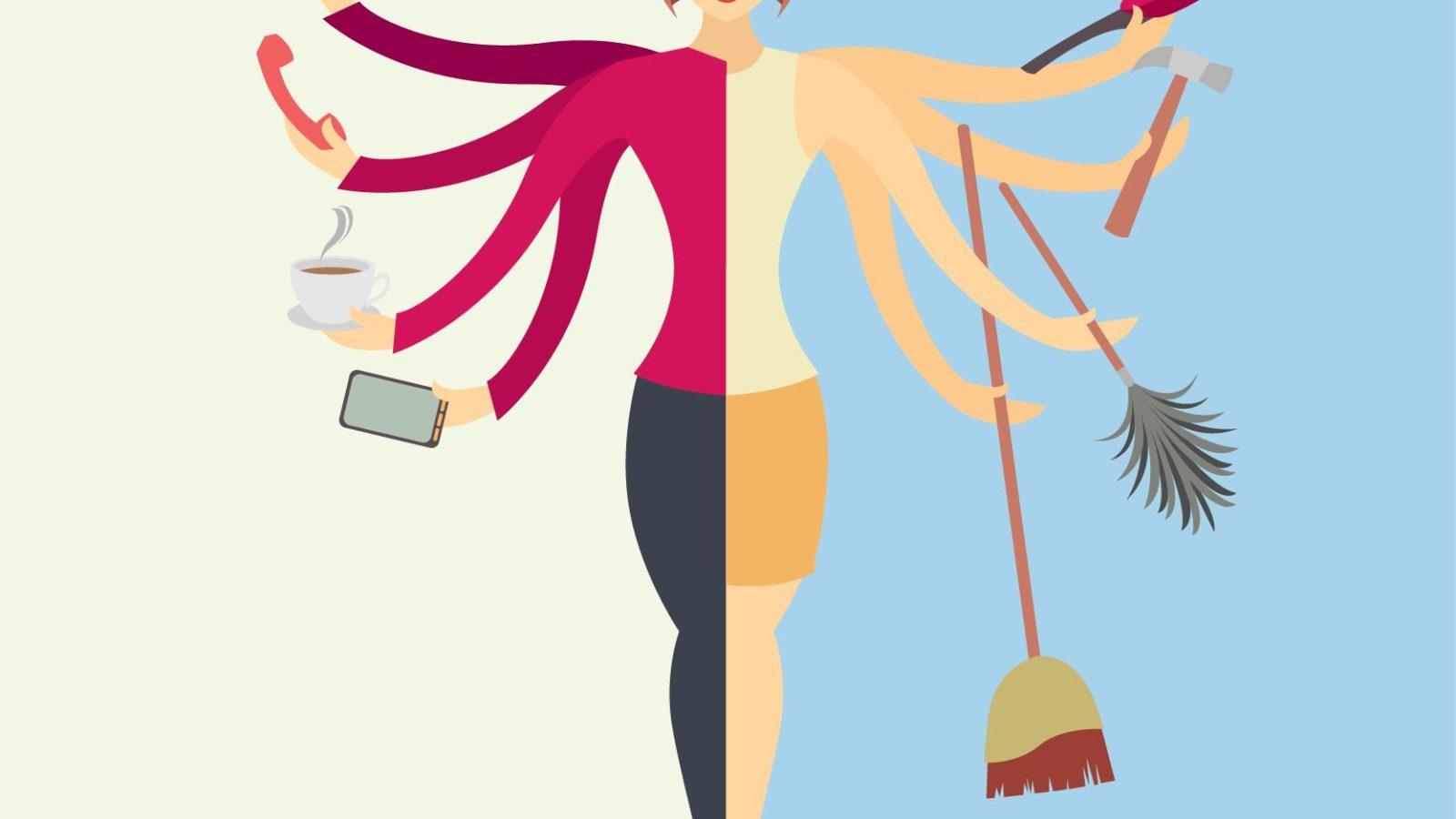With the world’s biggest lockdown in effect due to the novel coronavirus and the COVID-19 pandemic, life has changed dramatically for all of us in India.
Before the pandemic and the lockdown, all of us used to strive hard to achieve the optimal work-life balance. We were dealing with the pressures at work, the responsibilities at home and finding ways of unwinding to ease our stresses and anxieties.
Now suddenly, with families self-isolating themselves, the boundary between home and work is greatly blurred. On one hand, the work-from-home culture has become the ‘New Normal’ and we’re using technology to the fullest to fulfil our professional responsibilities. On the other hand, with most of us having no domestic help or nannies to support the household duties while the entire family is confined indoors, we’re forced to do our own cooking, cleaning and washing as well.
With children deprived of social activities and interactions outside the home, they’re filled with boundless energy and hardly any outlets to expend it. All things considered, finding the right balance between work and home is not proving to be easy at all for people right now. It is by no means a vacation.
Moreover, even today, the Indian woman is the fulcrum of the family, deftly juggling her work obligations with her home responsibilities. And although, gender roles have been evolving in a big way over the last decade or so, in traditional households, women still have far greater responsibilities when it comes to childcare and housework. With this lockdown in play, there is a concern that, again, it is the women who will be saddled even more than usual with the demands of the home, increasing their stress levels and, in turn, their vulnerability to mental health concerns.
What is it then that we can do to find the right work-life balance during this period of isolation?
Studies clearly indicate that having a fixed routine and a structured life tends to increase productivity and improve mental health. And so, even during this lockdown, we must strive to structure our day with as efficient a schedule as possible.
Sleep deprivation affects our mental health and psychological state. And so, it is vital that you get adequate sleep. With a fixed sleep schedule, you can wake up fresh and get through the day feeling energised. Showering late or lazing around in your lounge clothes may not be a good idea either. Dress in your day clothes and approach the day with a sense of purpose.
Organise your daily routine with a time-table like you did under normal, pre-lockdown circumstances. Set aside adequate time for everything that you ‘need to do’ and ‘would like to do’.
Have a designated time slot for working from home. Find a room or a quiet corner and make it your workspace. Dress in your work clothes. It is also essential to connect via phone calls, video-calling and virtual meets with your colleagues. Setting deadlines for what you have to achieve can increase efficiency. All of these can give the working-from-home situation a sense of seriousness and professionalism.
Working from home with children bustling around, however, can be difficult. They’re invariably going to interrupt and disturb you with their usual and unusual demands. Try and work with and around the needs and schedules of the children as far as possible. With the older kids, you can explain the situation to them and set some rules, so that they understand that there are boundaries that they must respect while you are working.
It is also important to divide the household chores among all members of the family. With everyone lending a helping hand, the workload can be lighter and things can get done faster. Even the kids can be asked to make their own beds or tidy up their things. The important thing, however, is for the domestic chores to become a family project. The sharing of household chores will automatically reduce the burden on the women of the household as well.
You can make it a routine to cook and eat meals together as a family. Social eating releases endorphins, our happiness hormones, which then react with the opiate receptors in our brains, triggering a sense of bonding and wellbeing. Similarly, you can set aside time to play games or watch movies together. In our busy day-to-day lives, we don’t often spend enough quality time with the family. This is an opportunity for the family bond to become even stronger.
Since the boundaries between ‘office work’ and ‘household work’ are blurred right now, it is also essential that we all take ‘time off for ourselves’ to create the right ‘work-life balance’.
Exercising is a critical component of mental fitness, as much as it is of physical fitness. A workout of any kind releases chemicals like endorphins and serotonin that can improve your overall mood.
Listen to music or read a book. Indulge in your hobby or acquire a new skill via online tutorials. Basically, any kind of me-time can help you de-stress. It can be therapeutic. It can help lower your blood pressure, ease your tense muscles and have a vastly positive effect on your mental health.
We humans are social animals and isolation can have a negative impact on our mental health, leading to feelings of restlessness, stress, anxiety and even anger. And so, it is also important for each of us to stay in touch with our relatives, friends and colleagues. Right now, phone calls, video-calling, virtual meets and the social media are our only channels for social interaction. We need to ensure that we find time in our packed schedule to catch up with family and friends. Just as you share information, share a few laughs as well. It can help you unwind and take time off from your burden of responsibilities.
All in all, we have to figure out how best we can balance working from home with our household duties and still find quality time for the family and a little me-time for ourselves. In fact, this lockdown is an opportunity for all of us to recalibrate our lives with healthier and far more positive routines, which can eventually lead to vastly-improved mental health.


